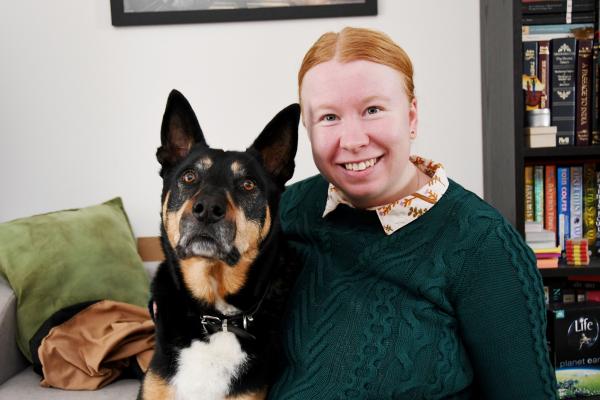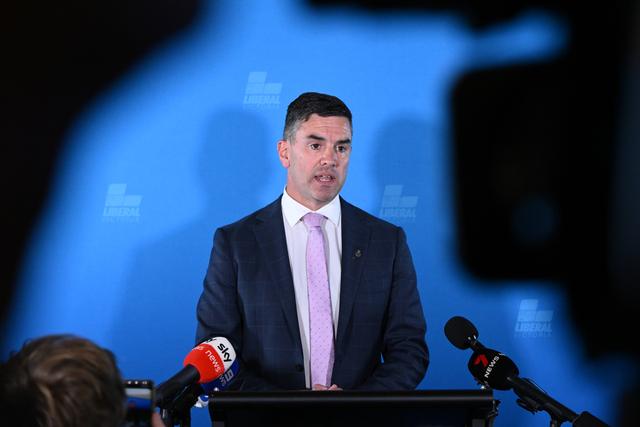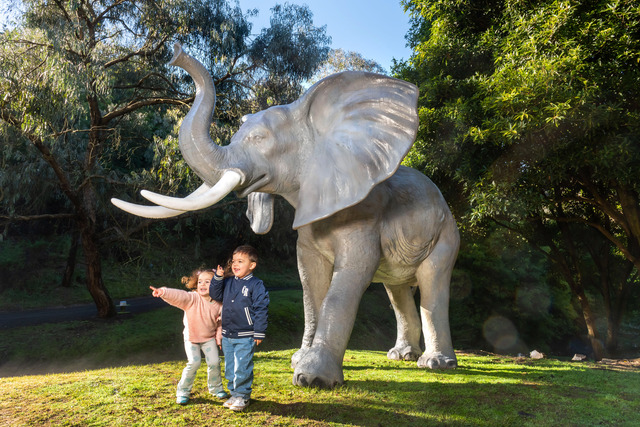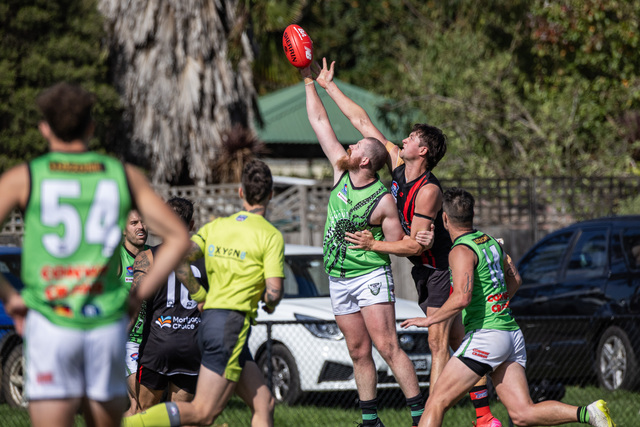In classrooms around the country, a quiet, pooch-led revolution is taking place.
Animal-assisted education is helping students to focus, try new things and stay calm in the classroom with the assistance of a therapy dog to guide them.
Cranbourne’s Oscar the kelpie and his owner Alissa Lever, a provisional psychologist, regularly visit schools around the area in their roles and have seen first-hand the impact of the therapy on students.
Oscar is on the payroll for Canine Comprehension, which runs wellbeing programs in schools.
Each of Oscar’s classes consists of 10 students chosen by the school, who sit with Oscar and cover a curriculum chosen by the school from one of the company’s programs.
The hour-long sessions can cover topics like anxiety, dog body language, friendship and other life lessons, and usually involve open discussion of the topic, an activity with Oscar that communicates a message about it, and some mindfulness to wind down.
“The work we do encourages kids that may be having a difficult time at school to come to classes, have a positive experience in the classroom and learn about emotions, self-awareness, empathy, communication skills, teamwork and problem-solving through interactions with Oscar,” Ms Lever said.
“We talk about the process of learning so that kids can use that information in their other classes when the dogs are not there to keep them at that calm level.”
She said Oscar averages three different school visits in a day, with debriefing walks in between each one to keep him happy and comfortable.
As a provisional psychologist, animal-assisted therapy is something that Ms Lever has long been interested in.
“I became interested in animal-assisted therapy during my undergraduate degree and began really looking into the research around it, as I was working with horses at the time and had noticed how much of a difference they made to my mental health and behaviour regulation.
“Funnily enough, Oscar was also at this work as the owner’s pet and I noticed that he seemed to have an uncanny ability to pick up what I needed at certain times, often herding the other dog away when I was ready to stop playing with them.
“When he and his friend needed to be rehomed, I volunteered to adopt Oscar in the hopes that he would take to therapy work and boy did he – he’s an absolute natural at it.”
The pair completed therapy-specific training through Lead the Way Institute, which offers courses in animal-assisted therapy.
With research in the area constantly being updated, the pair’s interventions regularly evolve.
There is also ongoing training to help maintain Oscar’s skills.
Covid lockdowns impacted on his ability to practise those important techniques as schools closed down over the pandemic, and Ms Lever said Oscar has some homework ahead of him to catch up and become proficient again.
While research into animal-assisted therapy is ongoing, Ms Lever said she has her own thoughts on why it works so well for so many.
“My thoughts are that most people know intrinsically that dogs don’t judge.
“They do not develop beliefs about you as a person, they respond to the behaviour that they are seeing and the feelings they are sensing and that can be really liberating for kids to say and do things they normally would be too shy to try without the dog.”
She said kids tended to persevere for longer around Oscar and try more options in a sign of increased confidence.
Ms Lever said she thinks of Oscar and herself as “co-facilitators”, jointly teaching the content.
“I can put the lesson into words, create a coherent picture and emphasise the main points, whereas Oscar is more practical and demonstrates the lessons non-verbally, which complements well as some kids will learn better from what I say and others pick up the points better from Oscar’s behaviour.”
She also ensures that students treat Oscar kindly, fairly and equally and helps them to interpret his behaviour, so that they recognise if he is beginning to tire or looks overwhelmed or distressed.
“I have been super impressed with how polite the kids typically are as most of them do ask if it’s OK to pat him before they do and they are very mindful of not over-crowding him,” Ms Lever explained.
“He loves the attention. Occasionally we have kids that are wary of Oscar due to fears or prior negative experiences with dogs but they typically relax around him eventually when they see how well behaved he is with other kids.”
To find out more about animal therapy, visit www.leadtheway.com.au or www.caninecomprehension.com.au
Oscar and Ms Lever can be contacted via email at oscarthetherapydog@gmail.com.au or you can follow Oscar’s work on Facebook @oscarthetherapydog or Instagram @oscar_the_therapy_dog







